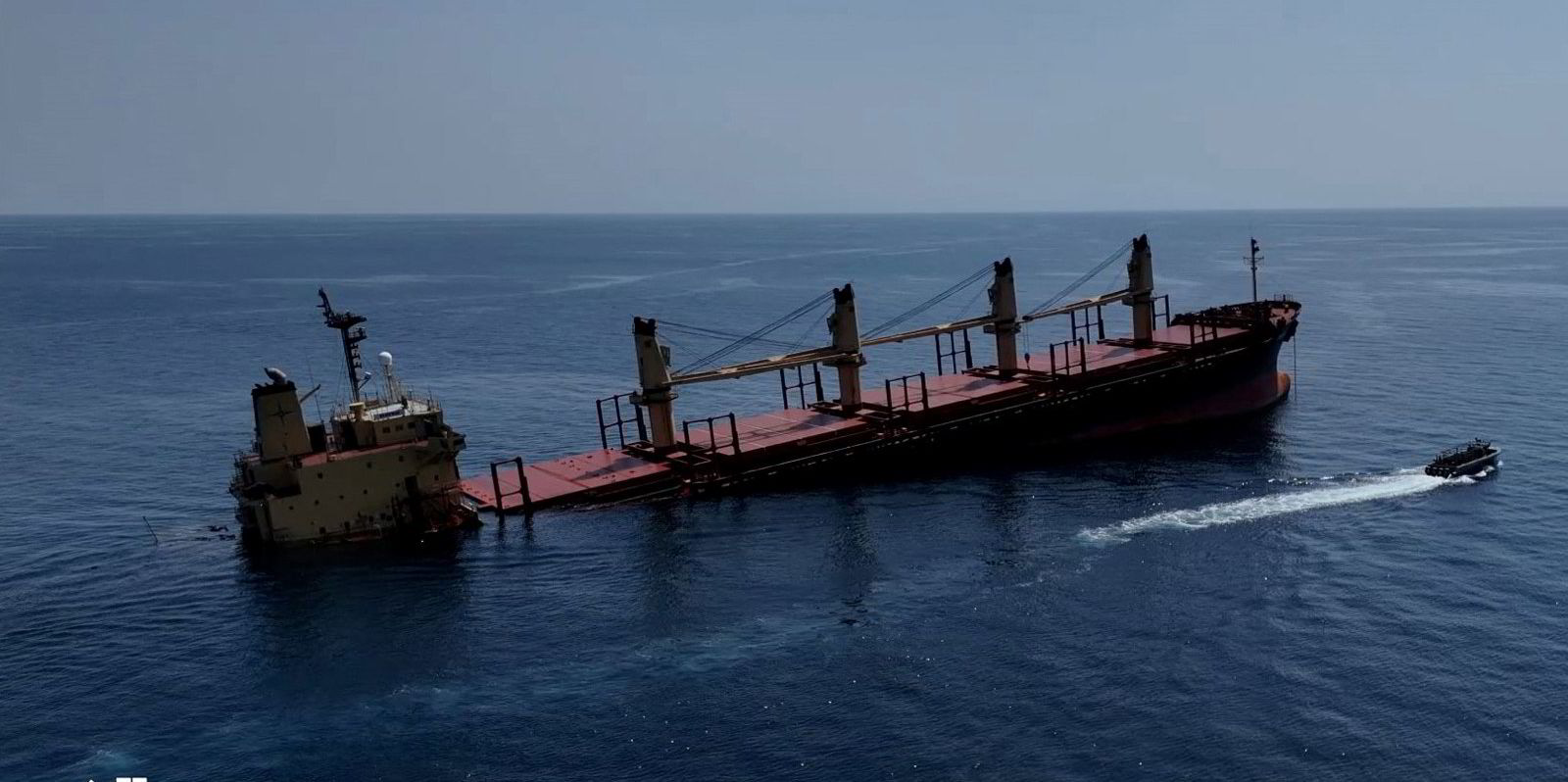The sinking of the bulker Rubymar by Houthi forces appears to have concentrated owners’ minds regarding the risks of crossing the Red Sea.
Clarksons Research has calculated that tonnage arrivals in the Gulf of Aden in the week to 3 March were 70% down on levels seen in the first half of 2023.
Managing director Steve Gordon said traffic was trending lower again after a small uptick in the previous week, when arrivals were only down 63% compared to a year earlier.
The Rubymar, claimed by the Yemeni militia to be UK-owned, was hit in a missile attack on 19 February and sank over the weekend.
Crude tanker arrivals in the region have dropped back again after the previous week’s rebound, returning to about 40% below first-half December numbers, Gordon noted.
Traffic had been similar to 2023 only seven days before.
Product carrier arrivals were 45% lower but higher than in February when the figure was 57%.
“Bulker arrivals remain well down [at 49%],” Gordon added.
And container ship traffic remains very limited, 92% lower than last year, he added.
Gas carriers continue to see very few transits, with no LNG carriers crossing the Red Sea since mid-January, and LPG ship arrivals down 98%.
Product tanker markets have eased in recent weeks after spiking in late January and early February.
Clarksons Research noted lower levels of enquiry on some long-haul routes.
The lump sum rate for an LR2 cargo on the Middle East to Europe route remained steady week-on-week at $4.5m, but down from $9m in late January.
This is still up from a level of $3.5m in the first half of 2023, however.
Cape of Good Hope tonnage arrivals have continued to increase, last week standing up 92% on 2023, compared to 65% in early February.
Last week saw more container ships and LPG carriers arriving, the company said.
Singapore shipowner Hafnia said this week it believes Red Sea disruption could result in demand for an extra 160 MR tankers.



